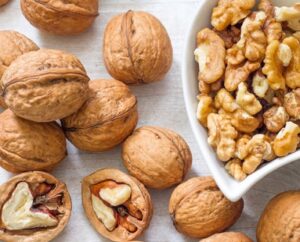Simple basics help you sleep better at night
Do you lay awake at night, tossing and turning wondering how you are meant to get to sleep? Understanding sleep, food and sleep environment are key elements that help to sleep better at night.
What is a good night sleep?
We all need different amounts of sleep and during our life the amount of sleep required also fluctuates. Experts suggest adults get 7-9 hours each night but the amount needed can vary between each of us. In winter they have found that we will sleep more than in summer, whereas teenagers need 8-10 hours each night, with babies needing up to 18 hours of sleep each day.
What causes sleep deprivation? Is sleep deprivation different to insomnia?
While sleep deprivation is technically a term to describe not getting enough sleep or insufficient time allocation to sleep and heal, restoring the body each night. Some people actually suffer from insomnia, which is totally different as although they have the time to sleep, they just can’t.
People suffering sleep deprivation can often try to catch up on sleep on weekends or by sleeping longer on other days. It can come about by shift work, pressures of working late or excessive working hours, binge watching Television or partying late into the evenings, all these can disrupt our sleep patterns.
Insomnia is often caused by other, usually medical factors including sleep apnea, breathing problems, medication or mental health conditions.
Symptoms of Insomnia or sleep deprivation.
The lack of sleep can impair our cognitive performance, it slows down our thinking so we don’t think clearly and have a good attention span so we can focus. It can affect our memory so we make poor decisions or take risks we normally wouldn’t think of. Our energy levels decrease affecting our moods and feelings making us irritable, less likely to be able to deal with anxiety or stress.
Long term affects of a lack of sleep
The long term affects of lack of sleep can be detrimental to our health and have serious consequences causing a wide variety of health complications to both our mental and physical bodies.
- Diabetes
- Hormonal abnormalities
- Cardiovascular disease – coronary heart disease, stroke, heart attack
- Obesity
- Immunodeficiency
- High blood pressure
- Mental health disorders – depression, anxiety and bipolar
Food choices affect sleep
Our grandmothers understood the relationships between sleep and the foods consumed during the day. The scientific world has caught up, with more and more understanding of the chemical makeup of foods and their impacts on the human brain and body. There is still much to learn, but like grandma, we know that there are foods that can help you sleep better and others to definitely avoid before bedtime.
Foods can help you sleep better.
- A warm glass of milk at bedtime is more than an old wives tale and paired with daily exercise is great for promoting sleep.
- Almonds are an incredible food source and eating a handful before bed has huge sleep related benefits.
- Chamomile tea is very popular as a sleep promoting drink because of the apigenin it contains. Chamomile has so many different heath benefits as well as relaxation.
- Walnuts are a one of the best sources of melatonin, so a handful of nuts before bed might help you with sleep.

- Passionflower tea is a herbal tea that is great for reducing anxiety, stress and calming the brain before bed.
- Banana’s contain tryptophan and magnesium, so may help with promoting sleep.
- White rice or oatmeal are high in carbs and if consumed an hour before bed can help with promoting sleep in some people.
- Fatty fish like tuna, salmon and sardines are high in Omerga-3 fatty acids which is said to be good for inducing sleep.
- Cherries and kiwi both have good properties that promote sleep.
- Turkey is a food that helps you relax by producing serotonin.
Foods to avoid before bedtime.
- Chocolate has a high level of caffeine and should be avoided as a late night snack. All chocolate should be consumed at least 4 hours before bedtime.
- Curry and spicy foods raise the bodies temperature which does not promote rest and relaxation, so should be avoided.
- Charcuterie boards with aged and strong cheese and cold meats increases alertness and DO NOT promote relaxation and sleep.
- Salted nuts and crisps dehydrate our bodies increasing the need for water, although you will sleep, you will wake more often with the need of water.
- Sweets, ice-cream and high sugary foods raise the blood sugar and keeps the body awake and highly invigorated.
Preparation and the sleep environment
- Create a good bedroom environment. Purchase a good supportive mattress and pillow, good block-out blinds, make sure it is cool, yet cozy and the room is inviting. Being quiet and extremely dark is really important to shut the mind down.
- Have a regular bedtime routine and morning routine helps to set the natural circadian rhythm.
- Limit technology usage an hour before bed as the blue screens on our computers, phones and tablets have an arousing effect on the body.
- Eat well balanced nutritional meals, avoiding big meals at the end of the day
- Exercise regularly, early in the day, so you get plenty of exposure to sunlight. Don’t do energetic exercise just before bedtime to make sure you are rested and ready to settle.
- Relax at the end of the day, try a meditation, warm bath, reading a book or other relaxation method at the end of each day to settle before bed. If after 15 minutes you are still having trouble getting to sleep, get up and try another relaxation activity then try to go to sleep again.
- Sleeping Aids. Be careful using sleeping aids as some people find the side effects can be worse than what they cure, so be sure to consult your doctor before taking anything.
It is easy to take a good night’s sleep for granted – until a bad night’s sleep happens to you. The occasional bad night is difficult, but prolonged loss of sleep is a serious health issue. Understanding sleep and the basics that you can apply to your routine are a great start to your sleeping better at night.
The information and suggestions in this article are of a general nature only. If you have sleep problems and have tried all the basics in this article, please consult your physician.









0 Comments